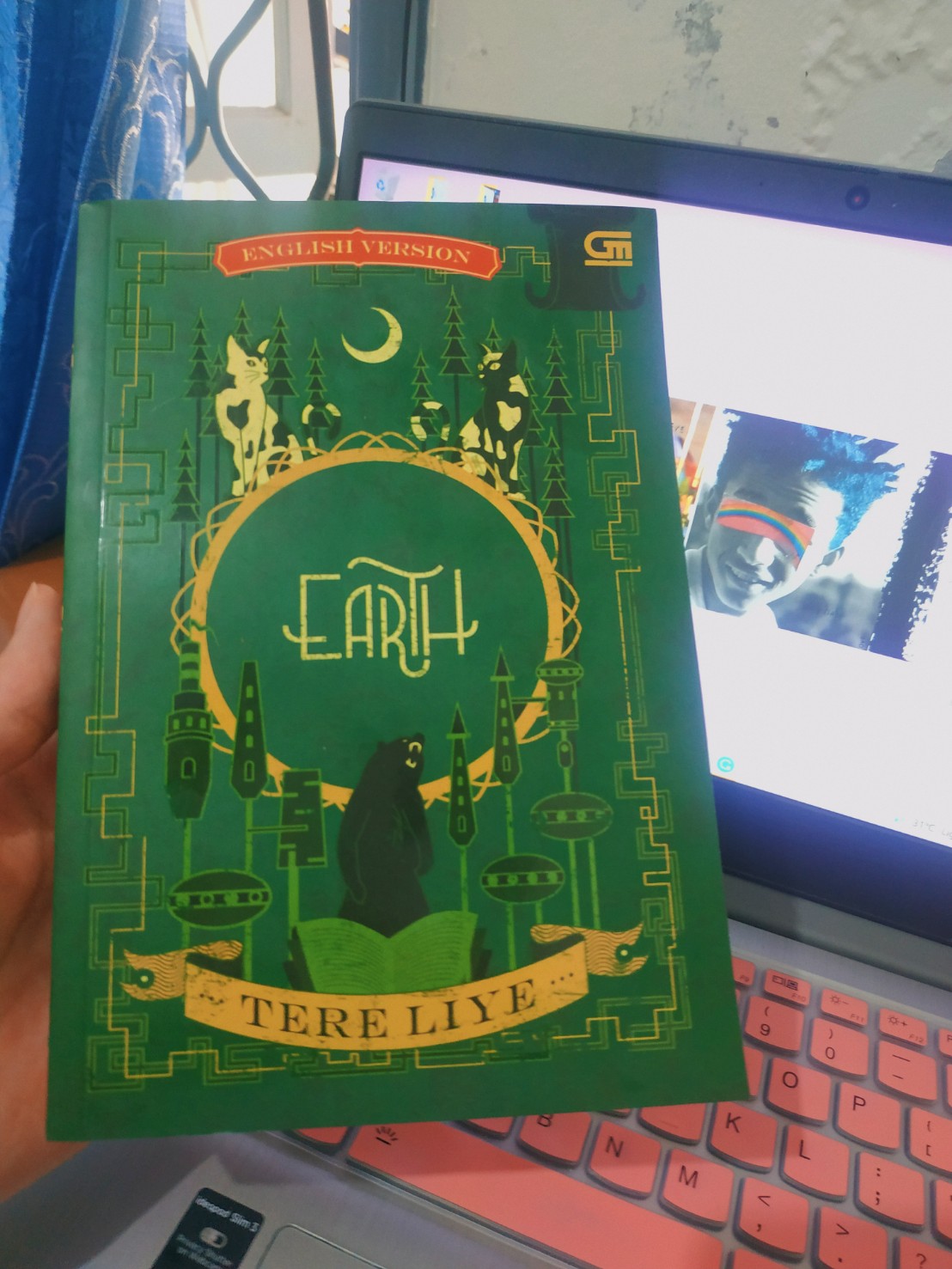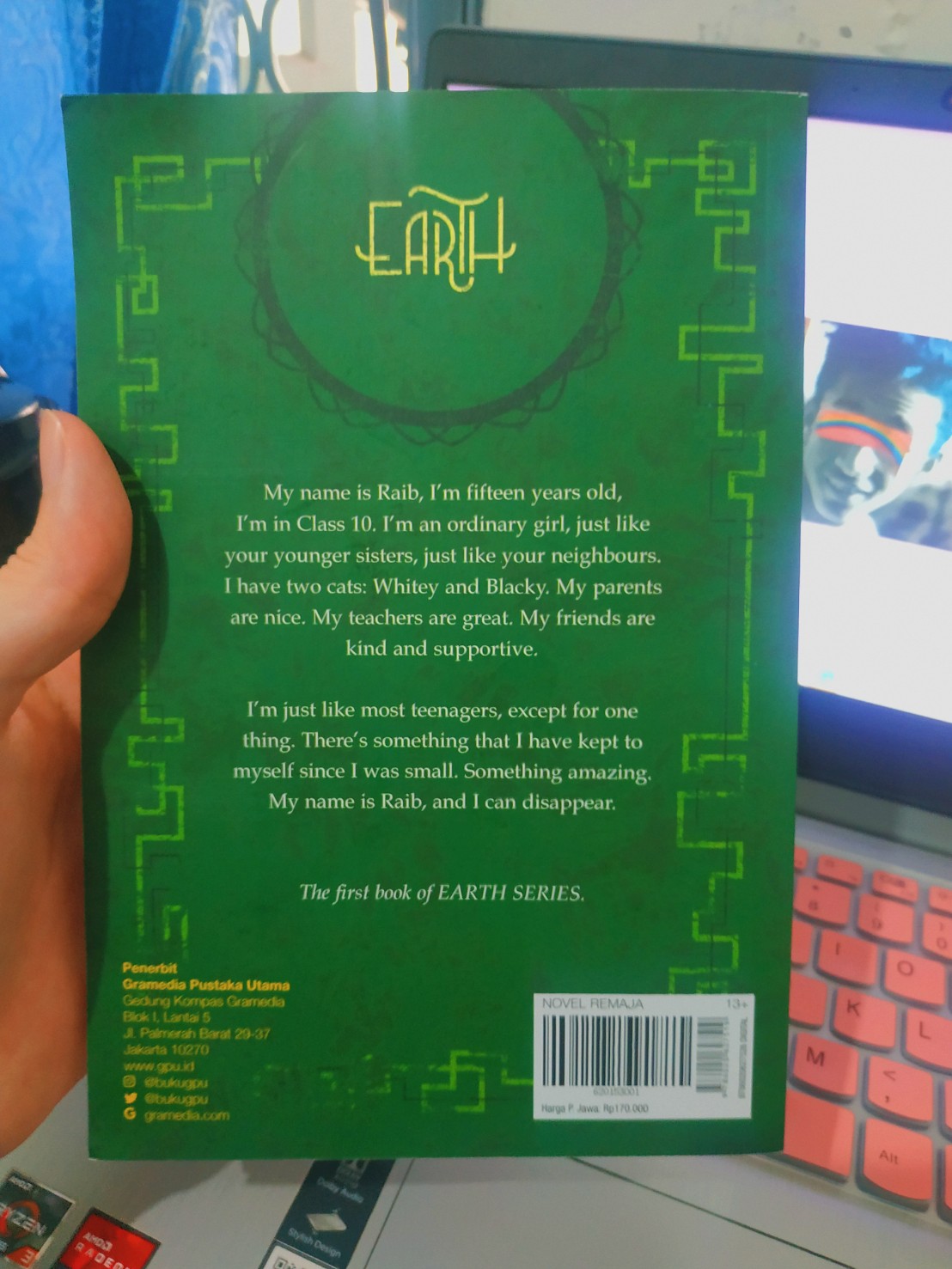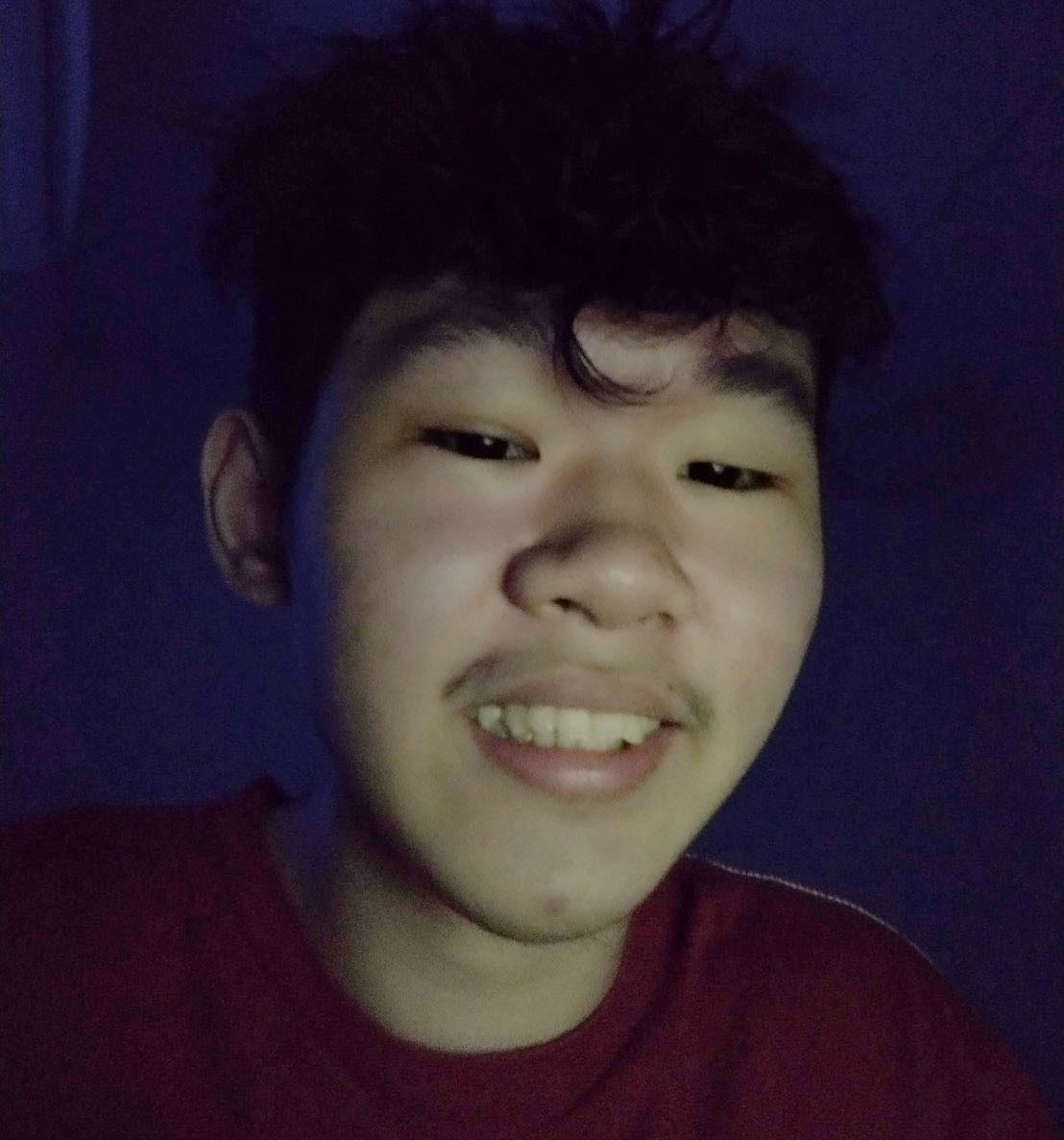Earth by Tere Liye: A Promising Fantasy Book from Indonesia
Disclaimer: This writing is full of spoilers. Please read the book first and don’t forget to buy it originally, or Tere Liye will make another social media post about piracy, please, I beg you.
Believe me, I’m not someone who is into fantasy. I love coming-of-age and young adults more than any genre, but that doesn’t mean I’m not going to be critical when I read a fantasy book. Earth or on its original title Bumi is a fantasy book by an Indonesian author Tere Liye, this book is also the beginning of the Earth series (but sometimes the author referred to the series as the Parallel World series, so I don’t know which one is the correct name). Technically, Earth is not that special compared to the rest of the books in the genre, but well, it’s not that bad either. The sole reason I bought Earth was that people claimed it as one of the best books from an Indonesian author, the truth to that claim will be answered in the paragraphs below.
Earth English edition – Photo taken by Handiko Wijaya
The characters are your typical fantasy story, a human kid with a special power who later would be revealed as the chosen one, or someone with a special bloodline. Meet Raib, a girl who can disappear (haha, get it? She is Raib and she can disappear… get it?). Raib’s friends are Seli and Ali, which later would also be revealed that they are special. Everything went chaos when Raib made contact with someone from the other world. Meet our villain, Tamus, who is similar to Professor Quirrell from Harry Potter, as their goal is to revive an old villain (Tamus wants to revive the Uncrowned, while Professor Quirell wants to revive Voldemort).
As the first book to a bigger series, Earth served its purpose as a walking exposition; a tool to build the world in the Parallel World series. Tere Liye spends so many times writing Raib’s daily life, and for some younger audiences, it may be okay, but for many older readers (like me) this could make the story seem dull. Tere Liye always puts an engaging bait of what will happen in the next chapter in the last paragraph of each chapter. Although it’s a good way to keep the readers hooked on the story, I still think it would be better to just give the fantasy to the readers.
The consequence of this slow pace during the early part of the story is a really annoying ending (for me, at least). I believe that a good story should end by concluding its problem, and not giving full responsibility to the sequel to explain many unanswered questions. The ending where Raib, Seli, and Ali fought Tamus is quite…weird. Raib is a mere kid who trained her power within two days, yet she could fight the Commanders of the Shadow Troops (which were hyped and being narrated that they ARE strong as hell). Raib is a walking plot armor. Three of them successfully defeated Tamus (a really old Commander of the Shadow Troops that was planning his evil plan from a long time ago), and that’s the ending. Even Harry Potter in the Philosopher’s Stone almost dies and needs Dumbledore’s help.
The back cover of Earth English edition – Photo taken by Handiko Wijaya
Earth ending put so much responsibility to its sequel to explain many unanswered questions. One of them is why Ali’s power didn’t show up during their first fight with the Shadow Troops? Who is Miss Selena? What will happen to Raib, Seli, and Ali after the battle in the library? How about Ilo’s son? If some readers wanted to only read the first book in the series, they would be left clueless regarding the lore. It is understandable if those questions above are needed to be left unanswered to keep the mystery of the series, but those questions are part of the Earth’s issues.
If Tere Liye wants people to buy the sequel, he should’ve made the ending more interesting by giving a promise of a more engaging adventure, not a cliffhanger. Cliffhanger is used by many authors, but not in the first book of the series. The example is the ending of the Philosopher’s Stone by J.K. Rowling (yes, I realize that J.K. Rowling is a bad author to be taken as an example, now shut up), both are fantasy books and the first book in the series, yet the Philosopher’s Stone ending is far from a cliffhanger, and instead, it puts an end to the story. The promise that Voldemort’s lore would be explored deeper was given, and if the readers wanted to stop at the first book, they wouldn’t be that clueless compared to Earth.
The Philosopher’s Stone didn’t go that deep into the Wizarding World’s lore, and instead, it was there to build the world first. While Earth put so much information later in the middle of the story, contradicting its pace during the early act.
While many moments made me feel tired of reading it, I found Earth as a decent book. Earth has a big potential to be a good series if the sequel could redeem the issues I found in the first book. Nevertheless, this is only the beginning of the Parallel World series, perhaps more fun adventures await us in the upcoming books by Tere Liye.
Editor: Nadia Salsabila




